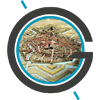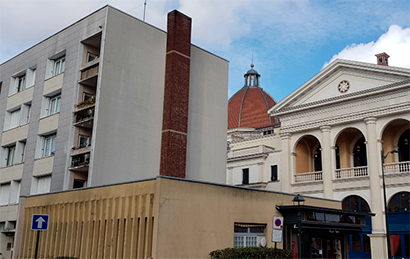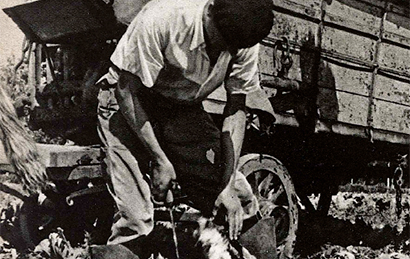About Laboratory
Geography-Cities, an interdisciplinary laboratory at the crossroads of human geography and urban studies
Located on the Condorcet Campus in Aubervilliers, a site dedicated to research and research training in the humanities and social sciences, Géographie-cités brings together eighty professors, researchers, engineers, and technicians, along with as many doctoral students. Together they conduct research that combines theoretical and epistemological reflection, quantitative and qualitative methods, empirical work, and comparative approaches. Geographie-cités shares data sets, source codes and materials produced by its researchers. The laboratory is involved in numerous scientific programs and partnerships, both in France and internationally.
UMR Administration

Géographie-cités – UMR 8504
Director: Éric Denis
Associate Director: Nicolas Verdier
General Secretary: Martine Laborde
CRIA Team
Director: Sabine Barles
EHGO Team
Co-directors: Olivier Orain and Nicolas Verdier
PARIS Team
Co-directors: Sophie Baudet-Michel and Hadrien Commenges
Five working groups exist within the UMR
STOP Harassment
The support and information working group on harassment.
Are you a target or witness of harassment? An internal committee can help support, inform, and assist you with institutional resources.
Visit page. The Stop Harassment committee members may be contacted individually or contact the committee at stopharcelement ( at ) parisgeo.cnrs.fr
Stop Harassment committee members: Sandrine Berroir ; Nadine Cattan ; Luc Guibard ; Saber Marrouchi ; Juliette Maulat ; Camille Schmoll ; Julie Vallée
UMR Digital Archives
(including archives of emeritus members)
Created in 2003 by Christine Kosmopoulos, the UMR Geographie-Cités’ open archive collection provides access to nearly 2000 full texts and more than 1400 references, including an exhaustive index of all laboratory production since 2017.
In addition, a policy of promoting the publications and work of its emeritus members, carried out by the UMR’s working group on heritage archives, has led to the creation of several individual open archive collections: François Durand-Dastes, Denise Pumain, Violette Rey, Thérèse Saint-Julien.
UMR Digital Archives Working Group Members: Julie Chouraqui, Christine Kosmopoulos, Olivier Orain
Tracking the UMR’s PhD Students
This working group has several objectives:
1) to identify and build a network of alumni
2) to maintain links in different directions: research, training, exchanges around professional paths
3) to provide visibility on the skills acquired during a PhD program
4) to provide visibility on former PhD students’ professional trajectories
UMR PhD Student Working Group Members: Sandrine Berroir, Joël Boulier, Clarisse Didelon Loiseau, Joséphine Lecuyer, Pierre Pistre, Natacha Rollinde de Beaumont, Christine Zanin
Digital Communication
The Digital Communication working group’s mission is to develop the Laboratory’s presence on digital media.
Digital Communication Working Group: Catherine Côme, Eric Denis, Antoine Gosnet, Julie Vallée
IT Management
This group was created in the context of adapting the IT system to the different policies of our cotutelles. Its mission is to analyse the needs of users in terms of business software (eg. Arcgis, Qgis, R) and resources (hardware). Its goal is to develop standards that will allow us to optimize the use of our resources according to technological developments.
IT Management Working Group Members: Ludovic Chalonge, Hadrien Commenges, Thomas Louail, Saber Marouchi, Yonathan Parmentier


















